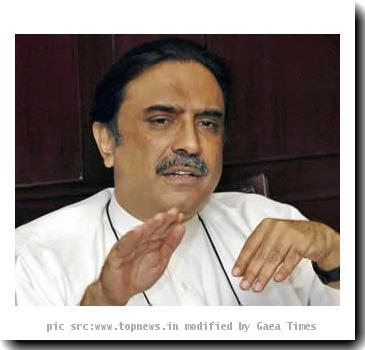Suicide attack targeting police patrol in NW Pakistan kills 11, including 3 police
By Ishtiaq Mahsud, APTuesday, May 18, 2010
Suicide attack kills 11 people in NW Pakistan
DERA ISMAIL KHAN, Pakistan — A suicide bomber on a bicycle killed 11 people Tuesday when he attacked a police patrol in an area of northwestern Pakistan where many citizens fled last year to escape a large army offensive against the Taliban, police said.
The attack, which killed three police officers and eight civilians, occurred as the patrol vehicle traveled through the town of Dera Ismail Khan, said Gul Afzal Khan, the police chief in the area.
The victims included a senior police officer in the area as well as his guard and driver, Khan said. The civilians who were killed included two schoolchildren, he said. Another 15 people were wounded.
Hundreds of thousands of people fled to Dera Ismail Khan in mid-October when the army launched a big ground offensive against the Pakistani Taliban’s main stronghold in the South Waziristan tribal area.
The displacement added to an already serious problem in Pakistan caused by similar operations launched earlier in the year, especially one in the Swat Valley near the Afghan border.
In total, an estimated 3 million Pakistanis fled to other areas of the country to avoid conflict last year, the highest number of internally displaced people anywhere in the world, according to a U.N.-backed report released Monday.
Around two-thirds were able to return to their homes by the end of the year, but some 1.2 million remained displaced, said the report published by the Norwegian Refugee Council, a non-governmental organization.
That number has grown this year as thousands of people have fled smaller operations the military has launched in the tribal areas against militants who fled the offensive in South Waziristan.
One such operation launched in Orakzai in mid-March has killed hundreds of suspected insurgents and caused more than 200,000 people to flee.
Pakistan has also been wracked by political turmoil this year following the Supreme Court’s decision to strike down a controversial amnesty protecting scores of government officials, including President Asif Ali Zardari, from corruption charges dating back several years.
The fallout from the decision took a new turn late Monday when Zardari pardoned Interior Minister Rehman Malik only hours after a high court upheld a previous conviction and prison sentence issued against him in absentia in 2004.
Zardari decided to issue the pardon because he believes the original case was part of a politically motivated “witch hunt” by then-President Gen. Pervez Musharraf, presidential spokesman Farhatullah Babar said Tuesday.
It is unclear how the Supreme Court, which has a tense relationship with Zardari and has pushed for the old corruption cases to be reopened, will respond to the president’s action.
Tags: As-pakistan, Asia, Asif Ali Zardari, Dera Ismail Khan, Pakistan, South Asia, Terrorism


